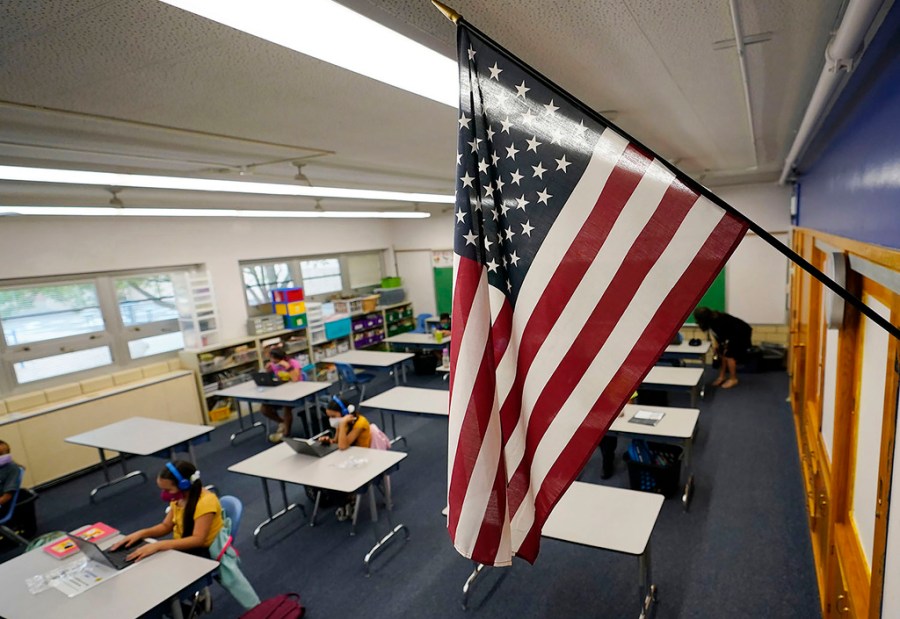
My perspective as a mom of two school-aged kids informs nearly everything I do as a United States senator, and it is through my own life and conversations with other parents that I came to understand the importance of achieving universal educational choice as an option for every student in America.
That is why, during this year’s National School Choice Week, I once again proudly joined as a co-sponsor of the Educational Choice for Children Act, introduced by Senate Committee on Health, Education, Labor and Pensions Chairman Bill Cassidy (R-La.). This bill would empower millions of parents in Alabama and across the country to access high-quality education that suits their child’s unique needs, regardless of income or zip code.
When it comes to education, one size does not fit all. Every family should be empowered to make the best possible choice for their child’s education. For many, that may be their traditional local public school; for others, it might be a traditional public school elsewhere; it could be a public charter or magnet school; it may be a private school or religious school; it could be a trade school; it could be home schooling; or it could be a virtual academy or hybrid solution.
The Educational Choice for Children Act would incentivize charitable donations to fund scholarships for families to use for K-12 education. Those scholarships would fund school tuition, supplemental educational services for children with special needs, tutoring, homeschool instruction and myriad of other expenses. As many as 2 million students across the U.S. would benefit from these scholarships, whether they live in the 32 states that have private school-choice laws or the 18 states that do not.
Although the Educational Choice for Children Act would provide funding for students to attend the schools best equipped to serve their needs, it would not impose new costs or mandates from Washington on states, schools or families. Rather than being administered by the U.S. Department of Education, the Educational Choice for Children Act would be a tax-incentive run through the Treasury Department to generate greater private financial support for students from kindergarten to 12th grade.
It is a tried-and-true model already in place in 21 states, including the great state of Alabama. In fact, my home state is quickly becoming a national leader in expanding K-12 education freedom and allowing families the opportunity to choose the best path for their children.
More than a decade ago, Alabama adopted its Education Scholarship Program, a state-level tax credit that generates privately funded scholarships for students from low-income and working-class families, offering those families more flexibility in selecting a school for their kids. Just last year, we became one of 12 states to enact universal school choice with the Creating Hope and Opportunity for Our Students’ Education Act, providing education savings accounts to all families with school-age children.
Expanding parental choice in education has always been good policy, and the need to do so has only grown over the past few years. The National Assessment of Educational Progress 2024 shows that American students have not recovered from COVID-era learning loss brought on by mass school closures during the pandemic. Existing data demonstrate that fourth- and eighth-grade reading scores remain below 2019 levels, despite the federal government adding nearly $200 billion above baseline K-12 education spending during COVID. It all goes to show that throwing money at this problem does not provide a coherent solution.
We must move past an approach of carefree spending without an eye on results. Instead, our government should encourage greater parental control over children’s education, empowering families to access the academic setting that best meets their kids’ needs and has the greatest potential to improve opportunities.
For millions of American families, the Educational Choice for Children Act would accomplish just that.
When more parents from low-income to middle-class households have the freedom to choose their children’s schools — the way higher-income parents can — they have the ability to shop around, finding the setting that checks all the boxes they see fit. Indeed, the numbers show this competitive effect from school choice increases accountability in both private and public education, leading to higher test scores, safer schools and more satisfied parents.
According to educational freedom advocacy group EdChoice, of the 188 empirical studies conducted on the efficacy of school-choice policies over the past three decades, 163 show positive results, while only 11 suggest negative outcomes.
Passing the Educational Choice for Children Act would allow parents and children across the U.S. to take advantage of opportunities typically available only to higher-income families, fulfilling President Trump’s promise of universal school choice by empowering parents and students. This would be a huge victory for hardworking families. It would build on the success of state-level programs without dictating education policy from on high in Washington. And it would create a lasting legacy of quality education for generations of American children.
Katie Britt serves as chair of the Senate Homeland Security Appropriations Subcommittee, deputy majority whip, and vice chair of the National Republican Senatorial Committee.











